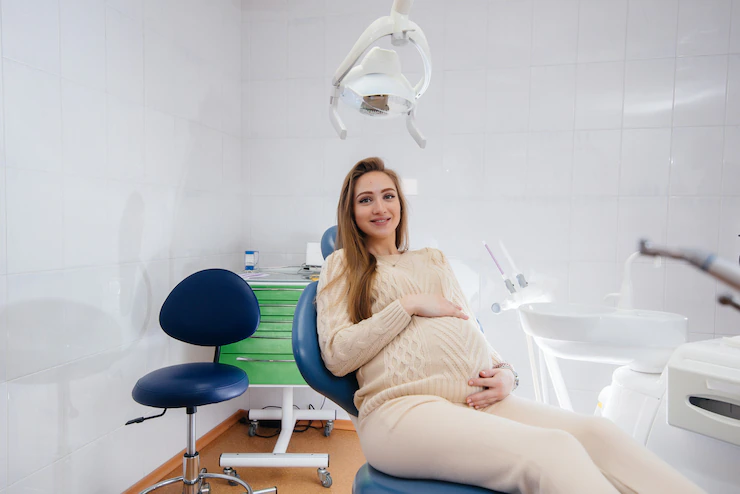Introduction
Pregnancy is a transformative and exciting time in a woman’s life, but it also brings about changes in the body, including oral health. Good dental care during pregnancy is not only important for the mother’s well-being but also for the overall health of the baby. This article aims to highlight the importance of dental care during pregnancy in South Africa and provide recommendations for maintaining optimal oral health throughout this period.
The Link Between Pregnancy and Oral Health
Pregnancy can have an impact on oral health due to hormonal changes, increased blood flow, and the body’s response to plaque. Some common oral health issues experienced during pregnancy include:
- Pregnancy Gingivitis: Hormonal changes can make the gums more susceptible to inflammation, leading to pregnancy gingivitis. Symptoms may include swollen, red, or bleeding gums.
- Increased Risk of Tooth Decay: Frequent snacking, cravings for sugary foods, and morning sickness can increase the risk of tooth decay and dental erosion during pregnancy.
- Pregnancy Tumors: Some pregnant individuals may develop pregnancy tumors, also known as pyogenic granulomas, which are non-cancerous growths that appear on the gums.
- Pre-existing Dental Conditions: Pregnancy can exacerbate pre-existing dental conditions, such as gum disease or tooth decay, if proper care is not taken.
Importance of Dental Care during Pregnancy
Maintaining good oral health during pregnancy is crucial for several reasons:
- Overall Health: Poor oral health has been linked to various health complications, including preterm birth, low birth weight, and gestational diabetes. Taking care of oral health can contribute to a healthier pregnancy and better outcomes for both mother and baby.
- Preventing Dental Issues: Regular dental check-ups and proper oral hygiene practices can help prevent and address oral health issues, such as gum disease and tooth decay. Early detection and treatment are key to managing these conditions effectively.
- Comfort and Well-being: Pregnancy can make individuals more susceptible to oral health problems, leading to discomfort, pain, and difficulties in eating and speaking. Good dental care promotes comfort and overall well-being during this special time.
Recommendations for Dental Care during Pregnancy
To ensure optimal oral health during pregnancy, consider the following recommendations:
- Regular Dental Check-ups: Schedule regular dental check-ups, ideally in the first trimester, to address any existing dental issues and monitor oral health throughout the pregnancy.
- Inform Your Dentist: Inform your dentist about your pregnancy and any changes in medications or medical conditions. This information helps them tailor treatments and provide appropriate care.
- Maintain Good Oral Hygiene: Brush your teeth at least twice a day with fluoride toothpaste and a soft-bristle toothbrush. Floss daily to remove plaque and food debris from between the teeth.
- Eat a Balanced Diet: Consume a nutritious and balanced diet rich in fruits, vegetables, whole grains, and lean proteins. Limit sugary snacks and beverages to reduce the risk of tooth decay.
- Manage Morning Sickness: If experiencing morning sickness, rinse your mouth with water or a fluoride mouthwash after vomiting to neutralize acid and protect tooth enamel.
- Practice Gentle Oral Care: Use gentle brushing techniques to prevent gum irritation and bleeding. Consider using a toothbrush with a smaller head and softer bristles to accommodate any increased sensitivity.
- Seek Dental Treatment Safely: If dental treatment is necessary, ensure that your dentist is aware of your pregnancy and consults with your obstetrician if needed. Certain procedures may be delayed until after childbirth, while others can be performed safely during pregnancy.
Conclusion
Maintaining good oral health during pregnancy is essential for the well-being of both mother and baby. By prioritizing dental care, pregnant individuals can reduce the risk of oral health complications and contribute to a healthier pregnancy. Through regular check-ups, proper oral hygiene practices, and a balanced diet, expectant mothers in South Africa can ensure their oral health remains in optimal condition. By working closely with dental professionals and healthcare providers, we can promote awareness and provide the necessary support to ensure that every pregnant woman receives the dental care she needs for a healthy and happy pregnancy.










